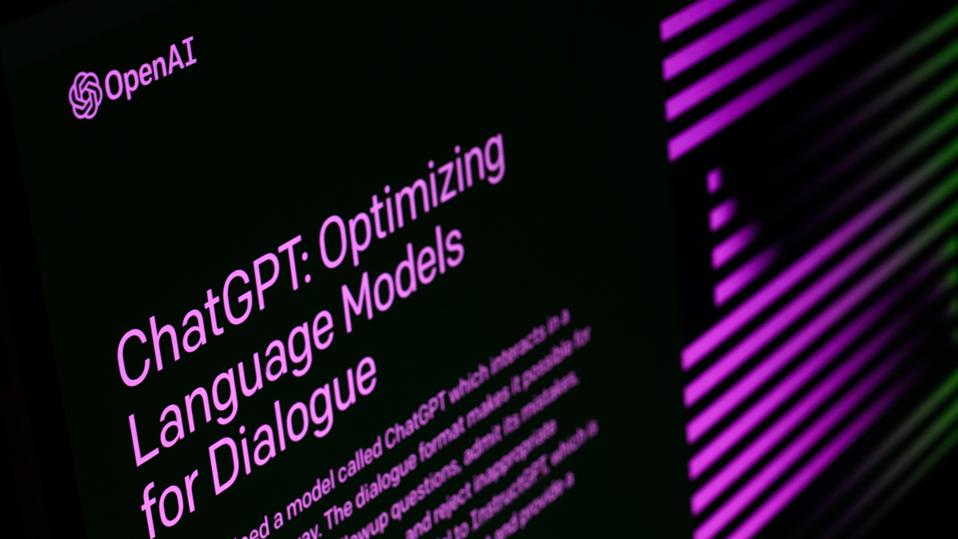Topline
OpenAI has integrated an artificial intelligence-powered search engine into ChatGPT, the company announced Thursday, a move that could enter OpenAI into an internet search market dominated by Google.

The company tested a search engine “prototype” earlier this year among a small group of ChatGPT users.
Getty Images
Key Facts
A search feature was enabled for paying ChatGPT Plus and ChatGPT Team users Thursday, and the new feature will be rolled out to those using the free version of the chatbot “over the coming months,” according to OpenAI.
The search engine was tested among a group of about 10,000 users and some publishers in July as a separate product, SearchGPT, which OpenAI said would utilize the company’s AI models to provide search results.
ChatGPT’s new search engine summarizes information from websites and then provides short descriptions with an attribution link instead of linking directly to a website, and allows users to ask follow-up questions or open other relevant links in a sidebar.
In one example, searching for musical festivals in Boone, North Carolina, in August results in a list of each festival and a short description, followed by a link to a website for that festival, with a sidebar with links to other relevant results like event scheduling or ticket sales.
OpenAI previously said publishers will be able to “manage how they appear” in search results and can opt out of having their content used to train OpenAI’s models while still appearing in searches.
Get Forbes Breaking News Text Alerts: We’re launching text message alerts so you’ll always know the biggest stories shaping the day’s headlines. Text “Alerts” to (201) 335-0739 or sign up here.
Key Background
There has been speculation on a new search engine from OpenAI this year, as the company moves to compete with Google in the search market. Bloomberg reported in May—citing a person familiar with the matter—that OpenAI was developing a new search feature for ChatGPT intended to compete with Google and the AI search startup Perplexity. At the time, OpenAI was “aggressively trying to poach Google employees” to develop the product, according to The Verge. OpenAI was reportedly planning the new search engine in May, before Google announced plans for its Gemini AI products at the company’s annual developer conference. OpenAI has partnered with several publishers over the last year, including the Associated Press, the Financial Times, The Wall Street Journal parent News Corp, and Politico and Business Insider’s parent company Axel Springer, among others. The partnerships allow OpenAI to use content by each publisher to help answer user queries and train the company’s AI models.
Tangent
The New York Times filed a lawsuit against OpenAI and Microsoft in December alleging “unlawful use” of millions of copyrighted articles by the publisher being used to train AI models. The Times alleges OpenAI and Microsoft’s technology that powers ChatGPT and Bing Chat, now called Copilot, could “Generate output that recites Times content verbatim, closely summarizes it and mimics its expressive style.” OpenAI filed a motion to dismiss parts of the complaint, suggesting users did not use ChatGPT or other products from the company as a “substitute” for a subscription to the Times. The lawsuit is ongoing.
